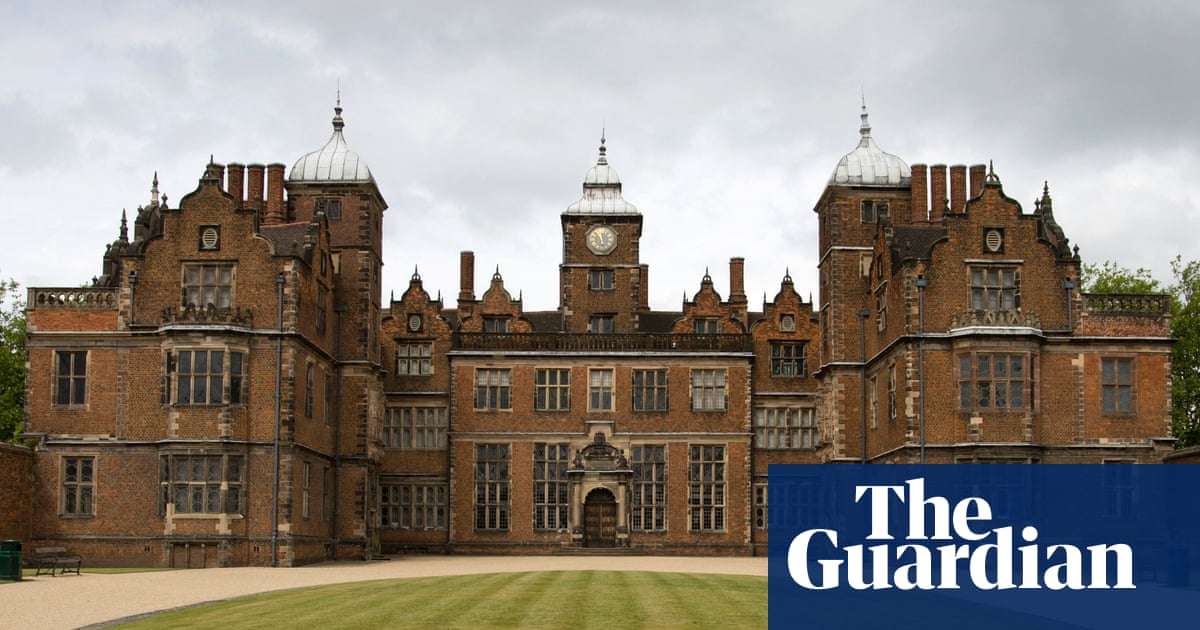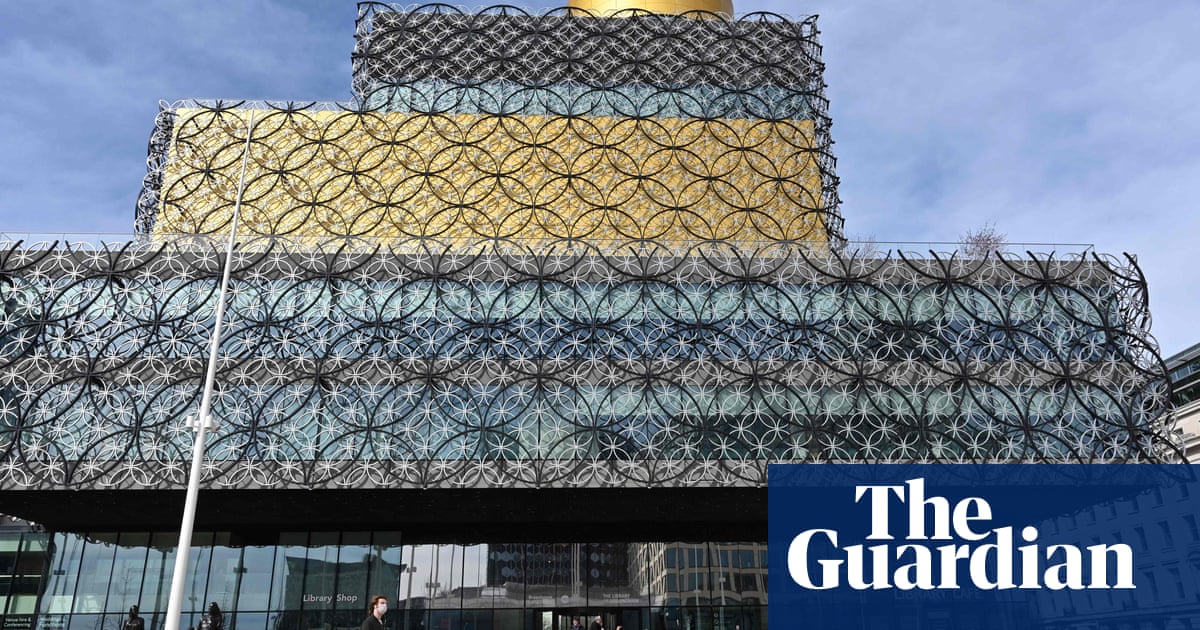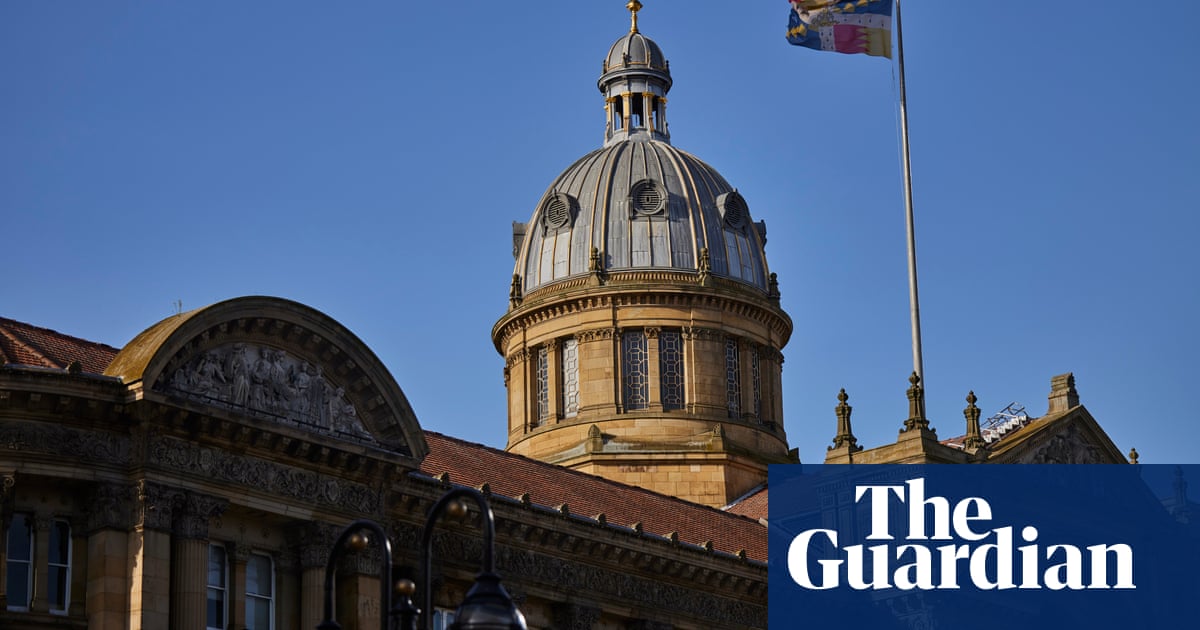
Birmingham’s financial reconstruction must not come at the cost of its priceless heritage, three of the country’s biggest cultural organisations have said.
After Birmingham city council declared itself in effect bankrupt this month, there has been growing speculation about what assets could be sold to help balance its books, with concern for the Library of Birmingham and the city’s main museum and art gallery.
In a joint letter, Historic England, Arts Council England and the National Lottery Heritage Fund urge the commissioners who are taking over the running of the council to ensure the city’s culture is “preserved and prioritised”.
“As the process of balancing the council’s books begins, local communities are rightly concerned about the fate of publicly owned historic places and buildings and arts and culture venues,” the letter states. “Birmingham’s financial reconstruction must not come at the cost of its priceless heritage.”
The letter lists sites including the Birmingham Museum and Art Gallery, Aston Hall, Moseley Road Baths, Symphony Hall and Cannon Hill Park as “precious, publicly owned places” that should be saved.
Neil Mendoza, the chair of Historic England, said: “Cultural and heritage assets are incredibly precious and important parts of communities. They’re not things to be bought and sold.
“This is a serious situation, and heritage and community considerations need to be taken into account as well as the obvious legal ones. People in Birmingham are really upset at the idea these things might even be considered as assets to be sold.”
The letter stresses that rather than being seen as a drain on resources, cultural assets should be “key drivers of economic regeneration”.
It references the “outpouring of emotion” after the fire and demolition of the Crooked House pub in Dudley, near Birmingham, as evidence of the strength of feeling associated with historical buildings.
“That demonstrates the level of passion that exists for heritage in the West Midlands,” the letter says. “That’s because it’s a place’s past and its people that shapes its present.”
On Monday, councillors in Birmingham voted to approve spending control measures as the local authority grapples with the financial problems, including a £760m equal pay claim bill, that led to it issuing a section 114 notice.
A revised emergency budget will be brought before the council late next month and government-appointed commissioners, led by the local government expert Max Caller, will take over the daily running of the council imminently.
On Wednesday the mayor of the West Midlands, Andy Street, said land should be sold to raise funds but cultural institutions should be saved.
“I have been clear from the beginning that residents and businesses shouldn’t bear the brunt of the city council’s mismanagement of equal pay,” he tweeted. “A land sale (NOT cultural assets) has to be the way to raise the cash and get the council back on a sound financial footing.”
An initial financial recovery plan for the authority suggested that the selling of council-owned assets, job cuts and a rise in council tax and business rates were all anticipated.
The council leader, John Cotton, said: “It has been an incredibly tough month for everyone associated with this council and I apologise to the people of Birmingham, our staff and our many partners across this city that we are faced with such stark choices. Our collective task now is to transform the council. We must act decisively to close off this council’s longstanding equal pay liability once and for all.”












